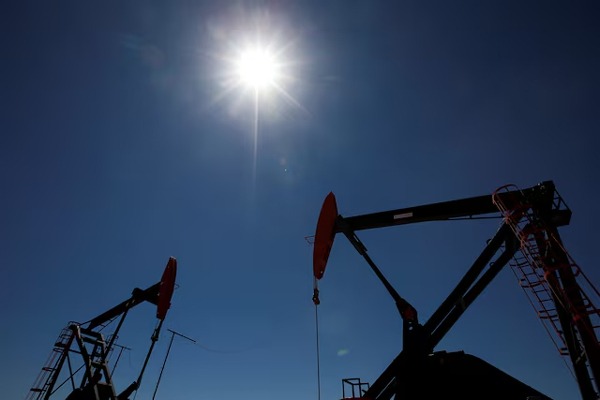
Marianna Parraga and Eliana Raszewski, Reuters
HOUSTON/BUENOS AIRES
EnergiesNet.com 09 13 2024
Argentina reduced its energy subsidies in the first seven months of the year by $2.7 billion, Energy Secretary Eduardo Rodriguez Chirillo said on Thursday, as part of a goal to curb the government’s fiscal deficit while also working to promote investment in the energy sector.
The South American country aims to advance an ambitious reform package that includes guarantees for large investments, a new hydrocarbon law, and changes to its foreign exchange system aimed at securing dividend repatriations for foreign investors, all part of President Javier Milei’s move to secure capital.
Rodriguez Chirillo told businessmen in Houston that Argentina achieved an energy trade balance surplus of $2.9 billion between January and July, a change from deficits in previous years.
“Our mission in the new model is that the investor can design his own model … and knows that he has the right to export,” said Rodriguez Chirillo.
The governor of Neuquen province, home to the nation’s giant Vaca Muerta shale oil and gas reserves, said at the meeting that Argentina must quickly move away from foreign exchange controls to attract oil and gas investment.
“We can multiply by six the (oil and gas) production we can offer to the world,” Governor Rolando Figueroa said, adding that clear rules, a new legal framework and a good administration of resources are essential to achieve output goals.
PROGRESSING
In a sign of a new wave of investment starting, oil and gas producers are announcing output expansions, midstream projects including terminals and key pipelines for exports, and the arrival of much-expected drilling equipment, officials said.
“A lot of capital is needed (for Argentina’s energy sector), not only from us,” said Horacio Marin, CEO of Argentina’s state energy company YPF. “We also are working to secure foreign investment in Argentina.”
An oil pipeline YPF is building from the Vaca Muerta shale region will have capacity of 350,000 barrels per day next year, and greater than 700,000 bpd in 2028 once a second phase is completed, expanding the nation’s crude export capacity, Marin said.
YPF is in talks with U.S. pipeline giant Energy Transfer (ET.N), opens new tab about becoming the operator, Marin added. A spokesperson for Energy Transfer did not reply to a request for comment.
LNG IN THE EYE
At least two large projects that could turn Argentina into an exporter of liquefied natural gas are being planned: one involving Malaysia’s Petronas (PETRA.UL) and another by Tecpetrol that could include modular onshore facilities.
The first phase of the flagship $55 billion LNG project between Petronas and YPF is expected to have a final investment decision between the third and the fourth quarters of next year, Marin said.
The capacity of the first phase will be up to 10 million tons per year with first output, to come entirely from floating facilities, expected between 2029 and 2030. A second phase to involve onshore facilities would inaugurate an additional 15 million to 20 million tons per year by 2032, he added.
Energy producer Pluspetrol is interested in participating in the two LNG projects, said Julian Escuder, the company’s country manager.
Pluspetrol plans to drill up to 25 wells per year in Vaca Muerta between 2025 and 2029, Escuder said.
Nabors Industries is supplying a drilling rig for work in Vaca Muerta’s Fortin de Piedra area, Tecpetrol CEO Ricardo Markous said at the meeting.
“We have the mandate to bring rigs into Argentina,” said Nabors’ vice president of global drilling, Travis Purvis, during the conference. The U.S. drilling firm moved a rig to Vaca Muerta this year, and two more are on their way to the country.
Reporting by Marianna Parraga in Houston and Eliana Raszewski in Buenos Aires; Editing by Adam Jourdan, Alistair Bell and Jonathan Oatis
reuters.com 09 12 2024












